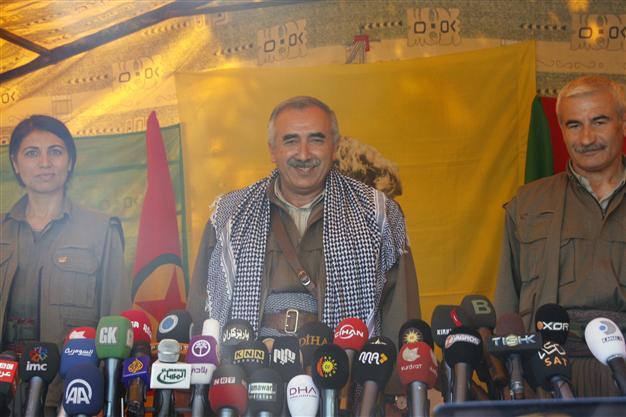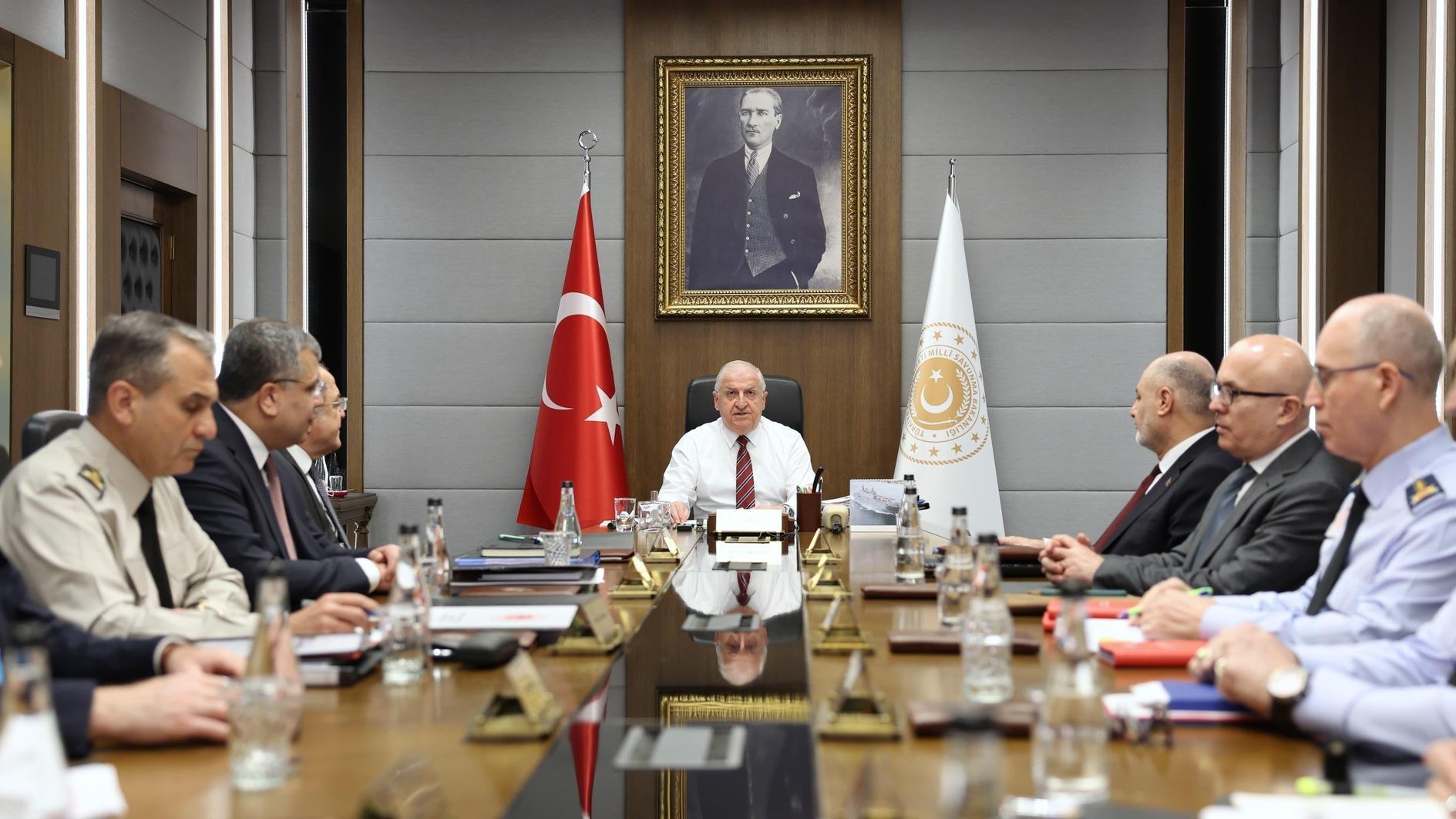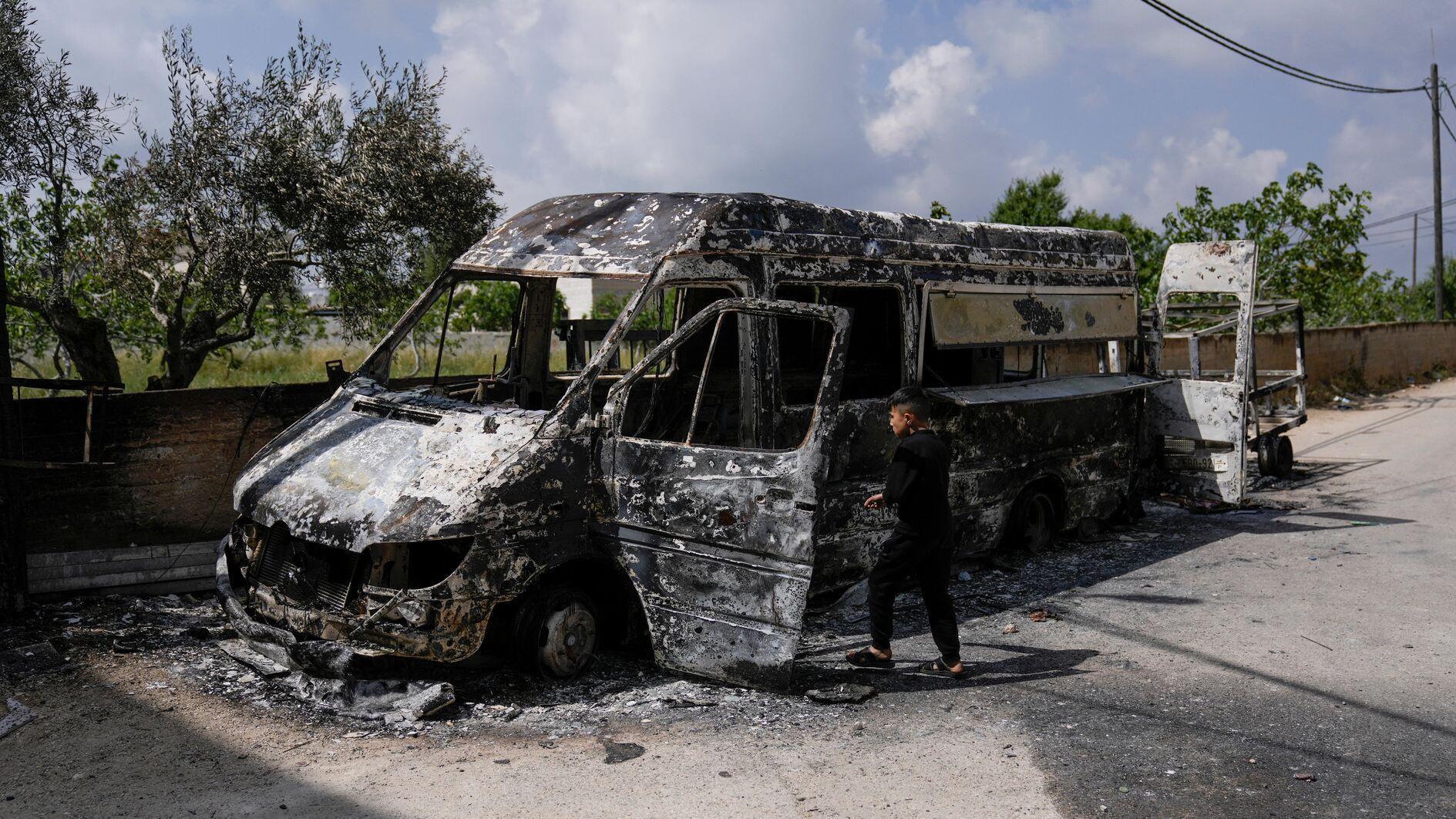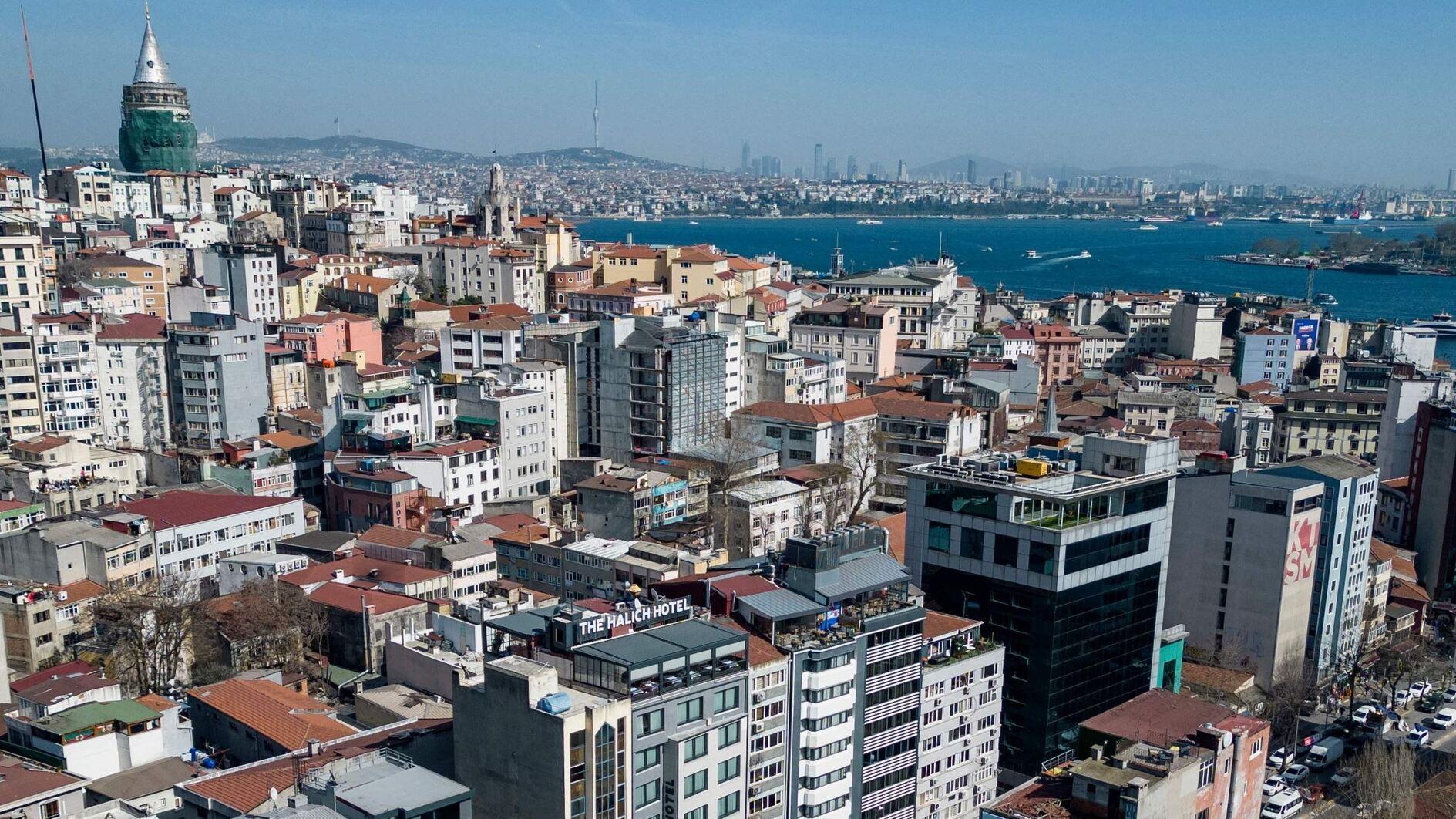Militants will start withdrawing from Turkey on May 8, PKK says
ISTANBUL

This photo shows Murat Karayılan(C), a senior leader in the outlawed Kurdistan Workers’ Party (PKK) and two other members. AFP Photo
The outlawed Kurdistan Workers’ Party (PKK) will begin withdrawing from Turkish soil on May 8, according to Murat Karayılan, a senior leader at the group’s base in the Kandil Mountains of northern Iraq.Karayılan, however, told reporters yesterday that any military operation targeting the militants would delay the withdrawal and cause the militants to retaliate.
The PKK also released a number of suggestions to facilitate the withdrawal during the press conference, which was attended by high ranking PKK members Zeki Şengali and executive board member Hacer Zagros.
The PKK militants will use previously traveled routes during the withdrawal in an organized and disciplined while avoiding any clashes, the group said, according to Fırat news agency, which is known to have close ties to the organization.
According to the ongoing preparations, the withdrawal will start on May 8 and will continue in phases. The process will be finalized “as soon as possible” and in secrecy.
The withdrawing militants will be deployed to “southern Kurdistan,” which refers to northern Iraq. Karayılan said they expected understanding from the Iraqi authorities, and particularly from the autonomous Kurdistan Regional Government (KRG). The Turkish military should show a “similar sensitivity,” while avoiding any “provocative and opportunist attitudes” in northern Iraq, he added.
In the event of any military operations being conducted against the militants, the withdrawal will be halted and the militants will use the “legitimate right of defense” to retaliate, Karayılan said.
The leader did not disclose in his statement whether the militants would pull out with or without arms. Both Turkish President Abdullan Gül and Prime Minister Recep Tayyip Erodğan have insisted on a withdrawal without arms in repeated remarks, while the military is asking for a legal regulation for the process as it is legally obliged to fight against terrorism.
In a statement on April 22, the military said it would keep on fighting against terrorists.
A number of other items that were mentioned in a letter to the jailed PKK leader, Abdullah Öcalan, and which are also known by the Turkish authorities, should also be considered, Karayılan said, without giving further details.
The last item in the list was related to observation by independent groups that could help spot problematic issues regarding the withdrawal.
‘Freedom to Öcalan’
The resolution process, meanwhile, will take place in three phases, according to Karayılan, who named the withdrawal as the first stage.
The second stage is the efforts, mainly from the Turkish government and the state, for a permanent solution, he said.
“With the reforms within the frame of a constitutional solution, the conditions for democratization in real terms and a solution to the Kurdish problem will emerge,” he said, calling for the abolition of the village guard system, support for the Turkish military and other “special war bodies.”
He also called for the new Constitution, which is currently being drafted under government auspices, to accord a place to the democratic rights, identity, beliefs and religious sects of Kurds.
The third stage, which deals with “normalization,” would include freedom for Öcalan, according to Karayılan. “The disarmament of guerrillas will be brought to the agenda following the realization of this process, which will witness the liberation of everyone, including that of leader Öcalan,” Fırat quoted Karayılan as saying.
Öcalan made a historic call on March 21 for the withdrawal as part of the ongoing efforts to find a peaceful solution to the Kurdish issue. The call came amid direct talks between him and a group of deputies, mainly from the Peace and Democracy Party (BDP), and letters to and from Kandil and the European arm of the PKK.
















